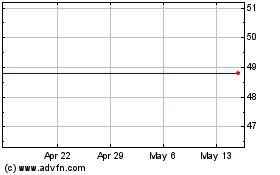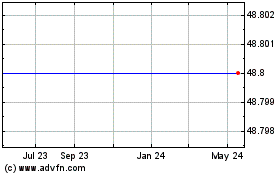10th annual ComEd Green Region Program helps
communities build climate resilience
To support natural habitats and other green-space projects,
particularly those that help mitigate the impacts of climate
change, ComEd and Openlands today announced they have awarded
individual, one-time grants of up to $10,000 each to 23
organizations through the annual ComEd Green Region Program. The
grants will fund projects that support and improve natural areas in
northern Illinois, including those that focus on enhancing
pollinator habitats and protecting species like butterflies and
bees.
“ComEd has a long history of supporting organizations and
communities in improving climate resiliency and protecting
pollinators and green spaces in Illinois,” said Gil Quiniones,
CEO of ComEd. “Partnering with Openlands for the last 10 years
has helped fuel community-driven sustainability projects that
enhance parks, protect vulnerable habitats and improve quality of
life throughout our region. We are proud to be surrounded by
communities and partners who are committed to cultivating a greener
future for Illinois.”
Now in its tenth year, ComEd and Openlands’ Green Region Grant
program has deployed over $1.9 million to communities and
organizations in northern Illinois. This funding has supported the
development of more than 82,000 feet of ADA-accessible trails,
planted more than 38,000 trees and improved more than 1,400 acres
of land. ComEd funds the program, and Openlands, one of the oldest
metropolitan environmental conservation organizations in the
nation, administers the grants to local communities and
organizations.
“For 10 years, the ComEd Green Region grant has helped
communities across northern Illinois improve the health and
vibrancy of their parks and natural areas,” said Jerry Adelmann,
CEO of Openlands. “From planting native trees and plants to
creating new gardens and natural areas, thousands of people have
engaged with nature close to home through this innovative program.
As the impacts of climate change increasingly affect northern
Illinois communities, Openlands is proud to partner with ComEd to
support projects that encourage natural climate solutions.”
ComEd and Openlands made today’s announcement at the West
Pullman Park Natural Area in Chicago, the site of a recently
completed conservation project made possible by a previous grant.
The Chicago Park District used a Green Region Grant awarded in 2019
to improve the existing Natural Area at West Pullman Park. The
project included the installation of six native trees and shrubs,
nearly 600 native flowering plants and three acres worth of native
seeds to increase biodiversity and provide an abundance of food
sources for pollinators. The Green Region grant funded all the new
plants and volunteers through the Chicago Conservation Program, and
the West Pullman Cultural Center supported the seeding and planting
events.
Focused investments in biodiversity and sustainability align
with the growing trend of community restoration in West Pullman,
leveraging the support of businesses, residents and local
leaders.
“Having partners like ComEd and Openlands who are committed to
improving green spaces throughout our communities are critical for
the implementation of impactful sustainability projects throughout
Illinois,” said Anthony Beale, 9th Ward Alderman, Chicago.
“Not only did this funding help improve biodiversity and create a
healthy habitat for local pollinators in West Pullman, but it also
brought together dedicated members of the neighborhood to bring new
life to a long-cherished green space.”
“Generous support from ComEd and Openlands infused life into the
West Pullman Park Natural Area, which continues to reap the rewards
from the 2019 investment in the revitalization of the urban green
space,” said Rosa Escareño, Chicago Park District Superintendent
& CEO. “As the Natural Area continues to grow, so do the
experience-based outdoor learning after-school programs, and
opportunities to educate visitors about the importance of plant
biodiversity in our parks to support the existence of
pollinators.”
Details of the ComEd Green Region Program can be found at
Openlands.org/GreenRegion.
The 23 ComEd Green Region Program grant recipients for 2022
are:
Jericho Lake Park Floodplain Restoration (Aurora): This
project is the first of a multi-phase effort to convert 17.6 acres
of turfgrass and invasive species into a natural area adjacent to
Blackberry Creek. This will increase native vegetation presence and
ecosystem resiliency.
6th Street Waterway Improvements (Belvidere): This
project will clean and restore functionality to an existing
waterway. The planning improvements for this open space will also
incorporate pollinator conservation and climate resiliency
concepts.
Gross Park Native and Pollinator Urban Park Revitalization
(Chicago): This project will revitalize garden beds in the
Rosco Park neighborhood with native and pollinator-friendly plants,
improve a local walking path and modernize signage to help educate
the community on the importance of these areas.
Harambee Community Garden Child-Friendly Butterfly Sanctuary
(Chicago): This project will create a pollinator paradise of
trees, shrubs and perennials integrated into established nature
play trails on in the Austin neighborhood on Chicago’s West Side.
Additionally, the project will include age-appropriate to educate
children on the importance of pollinator conservation.
Homan Rails & Prairie Restoration (Chicago): This
project will support restoration and revitalization efforts for the
pollinator prairie at Homan Rails Farm in the North Lawndale
neighborhood in Chicago. The prairie will be open to visitors and
provide education on the environmental benefits of the pollinator
prairie.
One Straw Community Garden (Chicago): This project will
support the development of an informational kiosk, printed
educational material and garden signage highlighting the importance
of sustainable and self-sufficient green space design to support
climate resilience in the North Lawndale neighborhood in
Chicago.
Stockyards Gardens (Chicago): This project will establish
a 36,000-square-foot urban farm and pollinator habitat for the Back
of the Yards neighborhood in Chicago. The site will also host
educational programming and community events for local schools and
organizations.
Kishwaukee Fen Nature Preserve Restoration (DeKalb): This
project will restore 27 acres of land currently overrun with
invasive and malignant species. This funding will equip the local
restoration community to care for the biodiversity of this nature
preserve.
Dundee Township Open Space Outreach & Engagement Project
(East Dundee): This project will support the township’s goal of
educating more residents and visitors about the importance of its
existing open space properties, including a variety of pollinator
habitats.
College of DuPage Pollinator Habitats to Address Climate
Change (Glen Ellyn): This project will convert 15,000 square
feet of turfgrass into a diverse perennial pollinator habitat.
Planning efforts will be driven by student and community members
who are already managing 40 acres of natural space on the
campus.
Reestablishing Illinois Prairie Land: Ongoing Tallgrass
Prairie Restoration at Charlotte Codo Prairie (Joliet): This
project will fund the transformation of 17 acres of agricultural
land into a native tallgrass prairie habitat. This endeavor will
support local pollinators, restore soil health, increase local
biodiversity and assist in climate resiliency research.
Flint Creek Restoration (Lake Barrington): This project
will extend a streambank restoration across two areas of the Flint
Creek Savanna. Native plants will replace non-native species to
improve stabilization, pollinator habitats and water quality.
Goetz Wetland Rehabilitation and Pollinator Enhancement (Lake
Bluff): This project will rehabilitate pivotal wetland habitats
by eradicating non-native species and installing wetland, emergent
and woodland species—increasing the diversity of native species
that support pollinators and migratory birds.
Kildare Restoration Project (Libertyville): This project
will restore a nine-acre parcel into a functioning, resilient and
publicly accessible native environment through the planting of
native vegetation. This will enhance the wetlands along Bull Creek
and improve overall water quality.
Native Garden Educational Signage (Libertyville): This
project will install educational signage for the Village of
Libertyville Native Garden, further connecting the community to
nature.
Phase II – Canalside Pollinator Habitat (Lockport): This
project will enhance pollinator habitats along the Illinois &
Michigan Canal, where four major rivers converge, install
educational signage highlighting natural features and develop
public educational programming about pollinator habitats.
Historic Downtown Long Grove Covered Bridge Conservancy and
Park (Long Grove): This project will transform an undeveloped
open space into an outdoor sanctuary for native plants, shrubs,
flowers and insects. This will enhance pollination and house a new
walking trail, enabling visitors to enjoy the new space.
Washington & Van Buren Street Pollinator Conservation
Project (Oswego): This project will add new soil, mulch, bug
hotels, native flowers and trees to village-owned land, creating a
safe habitat for pollinator species.
Wetland Restoration at Boger Bog Conservation Area
(Richmond): This project will take place over multiple years to
restore the natural hydrology of the rare graminoid fen wetland in
McHenry County. Funding from this grant will support the first
phase of engineering for the project.
Illinois Prairie Pollinator Rain Garden (St. Charles):
This project will build a publicly accessible Prairie Pollinator
Rain Garden in the shape of Illinois, creating space to share
natural resources with the community and establish new pollinator
habitats.
Veteran’s Memorial Garden (University Park): This project
will add a garden along the Veteran’s Memorial Wall in University
Park, utilizing native plants to enrich the biodiversity of the
area, build climate resilience and provide a pollinator
sanctuary.
City of Warrenville Trailhead Project (Warrenville): This
project will enhance the land adjacent to the Illinois Prairie Path
to serve as a place for community members to rest, relax, and enjoy
the city’s pollinator habitat garden.
Legacy Park Pollinator Habitat (Willow Springs): This
project will expand and enhance Legacy Garden Park into an
established pollinator habitat. The park will support native
pollinator species and include education signage on the importance
of pollinators.
ComEd is a unit of Chicago-based Exelon
Corporation (NASDAQ: EXC), a Fortune 200 energy company with
approximately 10 million electricity and natural gas customers –
the largest number of customers in the U.S. ComEd powers the lives
of more than 4 million customers across northern Illinois, or 70
percent of the state’s population. For more information visit
ComEd.com, and connect with the company on Facebook, Twitter,
Instagram and YouTube.
View source
version on businesswire.com: https://www.businesswire.com/news/home/20220818005632/en/
ComEd Media Relations 312-394-3500
Exelon (NYSE:EXC)
Historical Stock Chart
From Jan 2025 to Feb 2025

Exelon (NYSE:EXC)
Historical Stock Chart
From Feb 2024 to Feb 2025
